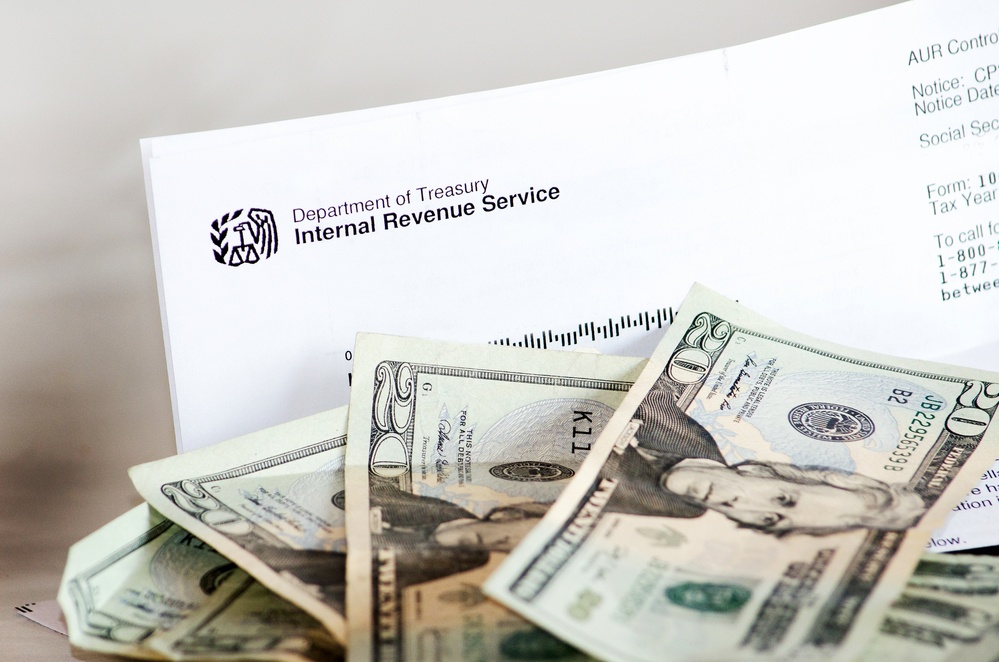The IRS expects you to file and pay your taxes on time each year. When you fail to submit a return, you put yourself at risk of IRS collection activities that could result in financial hardships for you and your family.
Read More >How Far Back Can the IRS Collect Unfiled Taxes?
Tips for Resolving Your Unfiled Back Taxes
The IRS expects you to file and pay your taxes on time each year. When you fall behind with your returns, you put yourself at risk of steep fines and penalties and collection activities like wage garnishments or bank levies. You can get caught up with filing your returns and settle your back taxes by using these strategies.
Read More >Understanding IRS Tax Penalties and How to Avoid Them
Tax season is stressful enough without having to worry about incurring IRS penalties. The IRS does not randomly assess penalties on people's tax obligations.
Can the IRS Audit a Deceased Person's Taxes?
Taxpayers by law must file returns for every year that they are alive and receive taxable income. This obligation does not at the moment that they pass away.
Read More >Solutions to the 4 Most Common Tax Problems People Face Today
You may have every intention of filing and paying your taxes on time each year. However, at some point you may experience an issue that prevents you from being compliant with the IRS.
Read More >Owe the IRS? Breathe and Remember these Tips
The IRS may seem like a scary government entity that wields too much power over your everyday life. In reality, taxpayers like you are given the proverbial upper hand in terms of how you can pay what you owe. When you have an outstanding IRS balance, you should keep these five important facts in mind before you decide what repayment or settlement option you want to use to resolve your federal tax debt.
Read More >The Impact that Owing Back Taxes Can Have on Getting a Passport
The IRS' main obligation centers on collecting current and past due taxes. Because it can be difficult to collect money from people who travel and live overseas, the federal government has implemented laws that could make it more challenging for seriously delinquent taxpayers to get a passport. If you owe taxes and plan to travel internationally, you should realize how your tax debt could impact your ability to get or renew your passport.
Read More >Choosing between OIC or CNC to Resolve Owed Back Taxes

The IRS allows cash-strapped taxpayers several different options to resolve their back taxes. They can either make an Offer in Compromise, or OIC, or they can request that their accounts be put in a Currently Not Collectible, or CNC, status. You can determine which of these options is best for your own delinquent tax situation by learning the basics of both choices.
Read More >
The Pros and Cons of An IRS Offer in Compromise
Owing a debt to the IRS can cast a stressful shadow over much of your life. Even as you try to continue with your normal routines, you are always aware that this debt must be paid at some point. When you simply cannot afford the entire amount owed, you may wonder if any financial remedy can help you resolve this obligation. While an offer in compromise could be an option for you to consider, you should be aware of the advantages and disadvantages of this possible remedy to your outstanding IRS debt.
10 Important Reminders about Owing the IRS Money
Owing the IRS money can be a stressful, if not downright frightening experience. You appreciate the power that this agency has to lay claim to your assets and capital. With that, it is crucial that you remember some important tips as you face this financial obligation and prepare to deal with it effectively. These reminders can help you form a plan that will let you pay off your tax debt and protect your money, your finances and your legal future.
SUBSCRIBE VIA EMAIL
POSTS BY TOPIC
- Tax Tips and Help (285)
- IRS Collections (121)
- IRS Audit (72)
- Tax Credits and Deductions (70)
- Tax Resolution (62)
- Business Taxes (54)
- Back Taxes (50)
- Wage Garnishment (22)
- Tax Levies (19)
- IRS Payment Plans (15)
- Tax Liens (14)
- Offer in Compromise (9)
- Unfiled Tax Returns (9)
- IRS Tax Attorneys (7)
- Asset Seizure (6)
- Tax Evasion (6)
- Criminal Tax Defense (4)
- Innocent Spouse Relief (4)
- Alimony (1)



.jpeg)




